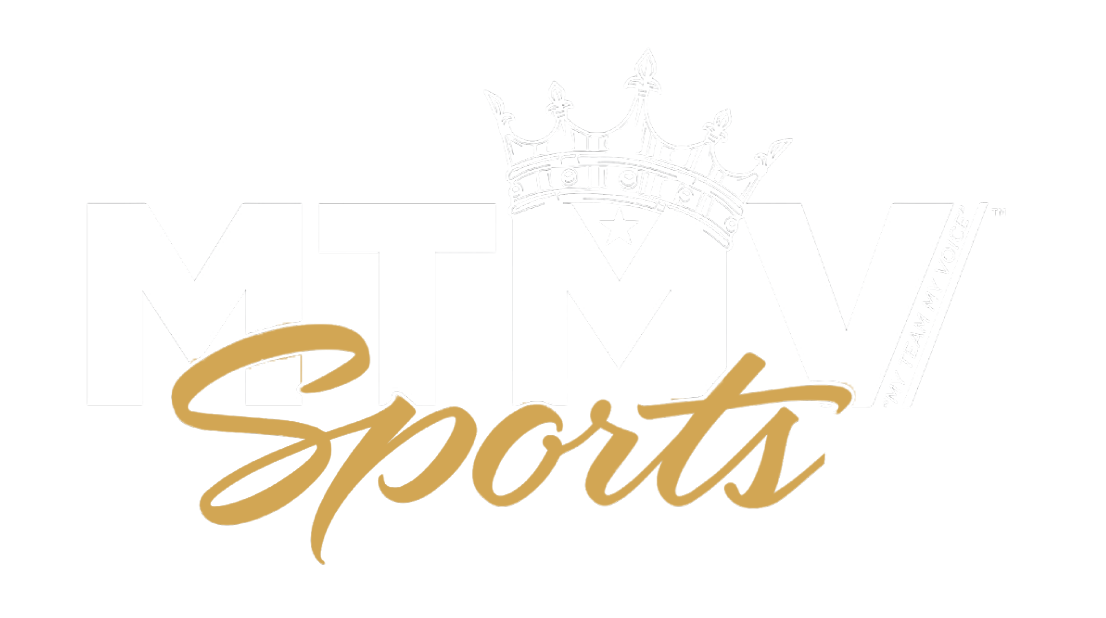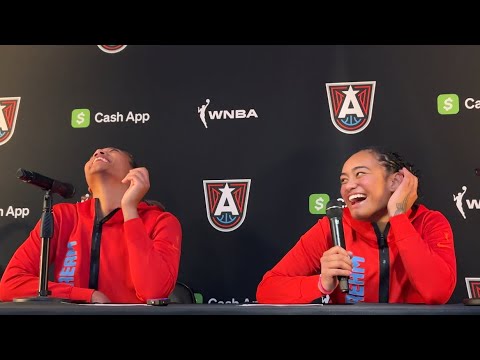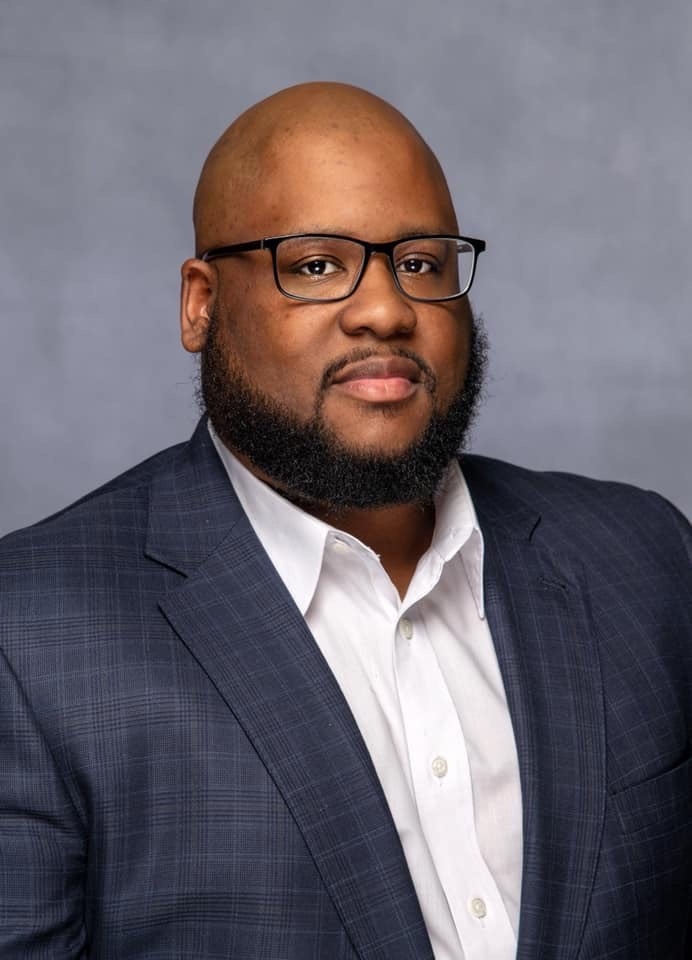
Ric Sincere: I’m blessed to be joined today by Mr. Kelly Cole. Mr. Cole is a two times number one bestselling author and in the CHH world he’s known as the genius behind and the father of, one Aaron Cole. I am so happy to have you here sir, how are you doing?
n
Kelly Cole: Great, man, thank you so much for having me, bro.
n
Ric Sincere: So we’re here today, because you’ve been on a path, letting people know about books for athletes. Today, we’re going to start off with a little bit of your story. Talk to me about how you got involved with writing books?
n
Kelly Cole: Yeah, man. So it was right after I quit both my jobs. I used to work at Wal-Mart during the day and blockbuster at night. And I actually wanted to quit. I always wanted to start a business on the internet after reading this guy’s story in this magazine called millionaire blueprints. I quit both of my jobs man and me and my family almost ended up homeless. I couldn’t pay rent for seven months, because I was only making $25 a week. I had one product online, and I was selling one a week. So you can imagine how hard that was trying to take care of family making $25 a week. So what happened was ABC introduced the TV show Shark Tank, I fell in love with the show, bro. So I’ve taken notes from the show. One of my friends asked me to borrow my notes one day. And she said, yo, this will make a great book. She said you should interview the sharks. I was like, I never thought about that. So I email all of the sharks on Shark Tank and Barbara Corcoran was the only one that hit me back. We hit it off. I was like Barbara; will you help me get an interview with Daymond? I’ve looked up to Daymond since FUBU. And she was like, Of course. She put me and Daymond in a group text and said Damon, give this guy interview. He’s a great guy. Daymond responded immediately. He’s like, for sure man. He was like, Yo hit up my assistant. She’ll schedule an interview, did that, I took my notes from the TV show those two interviews, transcribed them, and turn it into a book that became my first number one bestseller on Amazon. And then the rest is history, bro. my inbox was flooded with people asking me how I did it. And to help them I got my first paid speaking engagement at Norfolk State University. And the rest is history, bro. That’s how I got started in book publishing.
n
Ric Sincere: I love that so much, that’s an incredible story. Okay, let me dive into that just a little bit more. Okay, so some people are scared to send that first email to acquire an interview. What did it take for you to say, you know what, I’m writing this email, and I’m getting this interview?
n
Kelly Cole: Well, if you think what I just said, Man, I literally I had nothing to lose, I had just got out of, you know, practically being homeless. Thank God for a gracious landlord, man. And remind me to come back to that at the end. Because I want to leave the people with one encouragement about that process of almost being homeless, and having a gracious landlord, but man, so I had nothing to lose. What could they say? Not respond Or just simply say no. Like, Mark Cuban, he responded. He just said he didn’t have the time. And I was like, yo, Mark, we can do it anytime. If you say 3am, I can do it then or whatever. Whenever you got the time, I’ll make the time. And he was just like, man, I appreciate it, but no I don’t really have the time, but he responded to me, the rest of them didn’t respond.
n
One of the keys that we know about is networking and relationship. Once I got Barbara to respond, and we hit it off. I was like, Man, it’s my opportunity for me to ask Barbara to connect me with Daymond. So man, it’s just you know, taking the first step.
nn
Doing nothing, changes absolutely nothing, doing something changes everything.
nn
And I live by that quote, doing nothing changes absolutely nothing. So if I were to stay where I was, I would not be here today. Everything changed by simply sending an email. And most people fear rejection, what do you fear rejection for, if you ain’t got nothing to lose? Like I said, all they could do is say no, or not respond. And if they don’t respond, just follow up again. And I’ve done that before. You know, I’m busy. So I know sometimes emails get lost in traffic. And you just follow up, man, and all they can do is say no, period.
n
Ric Sincere: You said since that time, you’ve helped people write books, and you’ve been a part of that book writing process. What led you down the athlete path? What led you to saying; there are athletes out there who have stories to tell, what led to that?
n
Kelly Cole: Yeah, so over my 15 years being in book publishing, I’ve published everything from a 16 year old girl who was born blind to NFL players, NBA players, doctors, apostles, bishops, pastors, everybody in between. I’ve done cookbooks, children’s books. And this beginning of this year, I began to pray. And I asked God, I said, Hey, I know there’s a group of people that I’m called to help; just tell me where to drop my net. And he told me, athletes, he said, all athletes have stories. He said if you think about it, they are the people who you have enjoyed working with the most. And they truly have, because I can relate. I can speak their language, because I played football. I played basketball, I had stories of overcoming. And I know everyone who’s an athlete has a story, bro. So I basically just prayed and God told me, its athletes. Nobody is talking to them, nobody serving them, and they have stories that will help people.
n
Ric Sincere: So you said you played ball yourself?
n
Kelly Cole: For sure, man.
n
Ric Sincere: Talk to me about that. So was it high school, college, where did you play ball?
n
Kelly Cole: Yeah, man. So I was I was actually a football guy, man. I started out in Chicago, you couldn’t tell me that I wasn’t a Chicago Bear and that I wasn’t going to be a Chicago Bear. You know, growing up playing peewee league football man. I ended up playing my freshman year of high school. I went to a school called Weber High School. It doesn’t exist anymore. But to give you some context, it’s the same high school that Coach K, the coach of Duke; he went to that high school in Chicago as well. So it is a very athletic school. My dad went to that high school. He was nominated for McDonald’s High School, All-American. When he played they were eighth in the nation in basketball. So I went there my freshman year. Starting off, I always tell people this, this particular story, starting off because I had lost all of my games in peewee and in midget ball. My first three games in freshman football, we lost the first three games. And I was like, Yo, I’m not doing this. I was getting ready to quit, right? And I remember my coach, he heard me, he was like, Kelly, you’re not quitting his team. He’s like, Listen, if y’all stick with me, he called a group meeting, and said “if y’all stick with me, and we win out, and we go into the playoffs, we got a chance of winning the championship”. We bought in man, and we actually did that, we won every game after those three, won the championship, and I scored a 70 yard touchdown, from the defensive end position. I hit a guy, he fumbled, and I scored a 70 yard touchdown.
nn
I want to share with some people how I manifested that. After we lost those three games, before every game after that, I would practice this play. I would say the guy’s going to come around, it’s going to be a sweet or a bootleg. I’m going to hit him and he’s going to drop the ball. I’m going to run a touchdown and I’m going to do my dance. I practiced this before every single game and it never happened until the championship game. The guy ran around to my side. I was defensive end, I hit him. He dropped the ball. I ran a 70 yard touchdown and did my dance in the end zone. All of my teammates, and my coaches, because they saw me practice this before every game, they were on the sidelines crying. Not only because we won the championship, but because I manifested me scoring a touchdown. So I get excited about moving up my sophomore year to varsity. My dad comes home and tells me we’re moving to Virginia. I immediately bro, just get… man. I’m hurt, my coaches are hurt, my teammates are hurt, but I moved here to Virginia. In Virginia, they don’t know I’m actually a great player. I get here and they don’t even let me practice. I’m getting no reps in practice. I’m coming home. I’m crying. I’m telling my dad “Listen, they won’t even give me any reps in practice.” And he was like, “Listen, I don’t play football. You play football. So you got to figure it out.” He said “when you go there and they do put you in, he said take all of that out on whoever’s in front of you.” Bro I did that my junior year and I ended up winning Defensive Player of the Year. My senior year. I broke my foot in the first scrimmage, missed the first two games, came back and still led the team in tackles and got Most Valuable Player as a middle linebacker and offensive guard. First lineman to ever win Most Valuable Player at the high school.
n
Funny story, I get a scholarship to college UVA, Virginia Wise. When I got to college, I figured out I didn’t love football as much as I thought I did. My dad tried to warn me because he played college basketball. He said “Listen son, that little MVP trophy ain’t going to mean nothing when you go to college” and he was right. Every freshman on my row of dorms, every one of them, was the MVP at their high school. College football was like such a higher level. The day we got there, they said drop your stuff off in the dorms and meet us on the field at 12 o’clock. We’re thinking, we’re just checking in. They set up an obstacle course, bro. That obstacle course was so tough. 30 kids went back after that obstacle course pack all this stuff up and left that day. That’s how tough that obstacle course was.
n
Ric Sincere: Were you one of those?
n
Kelly Cole: No, no, no, I lasted a week. So I didn’t leave that day. But that day, I had it on my mind. I’m like, bro, listen, this ain’t it. This is not the move right here. But I figured out man, I didn’t love it as much as I thought I did. It was no longer fun. But yeah, I thought about leaving that day. I made it, but man had I stayed in college, I wouldn’t have Aaron because probably a month after leaving college, I found out my girl, who became my wife, was pregnant with Aaron. So here we are…
nn
Ric Sincere: Wow. You said that there is a story in every athlete. And you were right? That was a compelling story. I was bought in. I loved it. You just talked to me about your story. Why do you believe that there’s a story in every athlete?
n
Kelly Cole: Well, if you play sports, you realize that sports teach you so many different things. Sports teaches you discipline. We all have to overcome, even if you don’t have to overcome things in your personal life, you have to overcome things in games, there’s highs and lows in games. Sports can teach you, overcoming, focus, coming together as a team, teamwork, and so many different things. I know, and especially with all of the athletes that have been calling me to do their books, they all have different stories. Like this guy that just published, he went to the University of Virginia, and ultimately made it to the league and played for the Baltimore Ravens. He had to overcome. His senior year at the University of Virginia, this Caucasian professor, went to the NCAA and went to the board and told them that he gave him (the athlete) a grade, because he felt bad for him because he was an African American student. Now, let’s pause for a second Ric. He did not ask him for a grade. He just did it on his own. He lost his eligibility for a year, had to go fight to get a scholarship back, had to go fight to get back on the field. He overcame all of that he had to prove that he never asked for the grade. He had to overcome all of that and still made it to the league. So that’s what I’m saying. We all have different stories, man; he still made it to the league. After overcoming that, it took him a year he had to go to the Supreme Court, all of that to fight to get his scholarship back. He, the athlete, never asked the guy for the grade. None of that. The guy just decided to go to the NCAA and tell them he gave him a grade
n
Ric Sincere: Wow. Wow. Now as a professor, I would have never done that. I wouldn’t have given the grade in the first place. But, I understand probably how he felt conscious wise. You know, I mean, that might have been dealing with him. At the same time. He never asked for the grade. So yeah, you have no reason to go and do that to that kid.
n
Kelly Cole: Why ruin his career? Why not go to him and say, Hey, I gave you this grade, I’m feeling kind of bad about it, but blah, blah, blah, why not do that?
n
Ric Sincere: I’m going to change your grade to an incomplete and then I’ll make you do all the work that led to the grade that you actually received.
n
Kelly Cole: Exactly. He went to the NCAA bro and the board of the school and, literally he tells the story. And it’s amazing. We published his book and I believe he peaked at Number three on the bestsellers list. It was an amazing story. He said they pulled up as his team was getting ready to play Florida State. They get off the bus, the head coach, the assistant coach, two security guards and two others get him as he walking off the bus and tell him they need to talk to him and that he would not be playing in that game.
nn
Just imagine that, and you didn’t do anything. You never asked for a grade. You’re a stand up student. You know you’re not cheating. You’re not doing anything. You’re just there to play football. You’re going to class; you’re doing your work. Stand up guy and this happens to you, bro. I’ve heard so many different stories like that, bro, so many different stories. Talking to a guy yesterday who got drafted I think he got drafted in 1978 by the Pittsburgh Steelers. They draft him. He gets hurt in training camp, right? They trick him and tell him Hey, if you hurry up and get back active, you’ll be our starting tight end or something like that, right? But they tricked him. He hurries up to come back and the day he came back, they released him. Had he stayed and not rushed to come back and went through the healing process; they would have had to pay him and put him on injured reserve. They cut him as soon as he came back. So bro, its so many different stories like that. And we ain’t even got to go there. We can talk about the guys who never made it to the league man. And they all have a story of different like I said; I’ve never made it to the league and, like you said, you were intrigued by my story. There are so many other stories and so many different things that you can relate to life after playing sports, and I don’t care what sport you played.
n
Ric Sincere: So talk to me about the process of writing a book. What does the process look like? Are they writing the book? Are they coming to you? Are you writing the book? How does that process work?
n
Kelly Cole: Yeah, our staff works either way. So a lot of the athletes, we are interviewing them and writing the book for them. So we do a ghost writing process where we get on zoom or something like this platform. They tell their story, and we actually write it in their voice. That’s one option. We also have some guys who like to write it on their own. I want to tell people, it’s not hard. The process is simple. You start with an outline. An outline is basically a list of the stories you want to cover in your book. That’s it. Okay, listen to the stories you want to cover in your book. And what I always tell people to shortcut the process, record yourself telling the story, just turn on your camera, turn your phone, record the audio. Record yourself just telling the story uploaded to a site called rev.com, they will transcribe your audio or video for $1 per minute, okay? And then look at the outline the same way you would look at if you went to the grocery store and you made a list. If you’re smart, you make a list when you go to the grocery store. Now, bro, when you come home, you don’t cook everything on the list in the order you bought them or the order you put them in the buggy do you? No, so look at your list every day, and decide what you feel like talking about, the same way you decide what you want to eat that day. Record it, transcribe it, and at the end, you got all your stories recorded. You got all your stories on paper and you just put it together from that point. You could do that in the weekend. It’s that simple. We overcomplicate it, it’s not hard. Simply make a list of the stories that you want to tell. Think about five to 10 questions someone would have about that story. And just record yourself answering the questions. Or ask your friend like I can call you and say Hey, bro, will you interview me and ask me these questions? Record it, transcribe it. Guess what? Your book is done. Just come to us. We’ll do your editing, your formatting, your book cover, distribution, and everything. It’s that simple. It’s not hard.
n
Ric Sincere: Wow! I always thought about writing a book. I never thought about it this seriously. I’m almost sold. I want to write now. Man, that’s cold blooded. I didn’t know about that process and the way you simplified it took away all the anxiety and the confusion about writing a book in the first place. Now let’s talk about the benefits. Let’s dive into the benefits of writing a book. How does it help me?
n
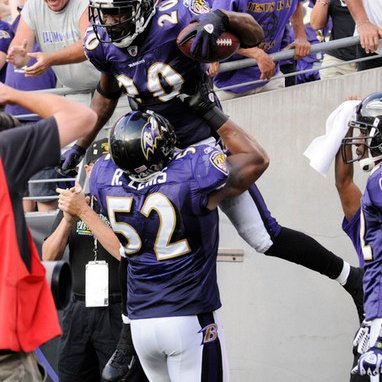
Kelly Cole: For sure. So think about this, when you write a book, you go from expert to an authority. Number one, it automatically gives you a product you can sell that becomes passive income. Number two, it opens up a door to get paid speaking engagements. Now, whether you’re a speaker are not, listen to me. That’s where you’re going to get a lump sum of money. Let me give you an example. I had a guy he was a trainer. He was Ray Lewis’ trainer and Ed Reed’s trainer. He was connected to the Ravens organization for over 20 years as their trainer. We did his book, peaked at number two on the bestsellers list. All of a sudden, the Baltimore Ravens make his book The Book of the Month. So they order a large sum of books for the whole organization. And they book him to speak. Now he was the same person before the book. He was connected to the same organization before the book, but the book opened up the door for him to not only get a lump sum check for them ordering a lump sum of books, making it the organization’s Book of the Month, but they also brought him in to speak. That’s just one example. The other guy just told you about at University of Virginia, just by creating his book he’s now doing two virtual speaking engagements a week, he is selling his book in bulk to Boys and Girls Clubs and to other sports teams. So think about not only the passive income that the book generates, but the doors that the book will open up for you, it’s going to automatically separate you from the pack and take you from expert to authority. And I always tell people, you can’t spell authority without spelling author first.
n
You can’t, it doesn’t happen. You can’t spell authority without spelling author first and it’s going to open up those doors, speaking engagements, doors for you to share your story, and its going to open up doors to build more relationships. And I always tell my authors to look at the book as your new business card. It’s just a big business card.
n
Ric Sincere: I’ve made this same BARS face, listening to your son rap, and you just dropped a bar right there sir!
n
Kelly Cole: Where do you think he got it from?
n
Ric Sincere: Let’s talk about some of the challenges of writing the book. So we talked about the ease of it. It sounded like a very easy and straightforward process. We also talked about the benefits of it. So what are some of those challenges that you see in the process?
n
Kelly Cole: The challenge, that I see most often is just simply over thinking it, it’s really not that hard. You just saw how I broke it down. Like you’re trying to do it the old way, the old way, is sitting at your computer, staring at a blank piece of paper, and trying to type out a book. That’s the old way. That’s why you’re having a challenge. That’s why your brain is hurting. That’s why you’re looking at this huge mountain that you have to write this book, less than 60 minutes of audio transcribed, will equal close to 10,000 words, and think about that. 60 minutes of audio transcribed will turn into 10,000 words; a 10,000 word book is at least about 70 pages. You get what I’m saying? The minimum amount of pages you can publish is 24 pages, right? So let’s just say hey, you don’t even want to record audio or record video, and you can speak your book into Word. Microsoft Word has in a speech to text option. Google Docs has a speech to text option; you can speak your book. So the biggest obstacle I see is people over thinking it. So I’m going to back up, I’m going to slow down; I’m going to tell you how to get this thing done in a weekend. Can we do that? Today is Friday, right? I don’t know when you’re going to air this, but whenever you listen to this, I’m going to tell you how to get this done in a weekend.
n
So all I want you to do on the first day is make the list of the stories you want to cover in your book. That’s all I want you to do. Just make a list of those stories. That’s going to become your outline, and that’s going to become your chapters. Okay? Day two, all I want you to do is look at each one of those chapter titles. And I want you to write five to 10 questions someone would have about that chapter title. That’s all I want you to do for the first part of the day of day two. Alright, second part of the day, I want you to just contact a friend and say, Hey, will you interview me and asked me these questions? That’s all I want you to do. Okay. Do the interview with your friend. You have your audios. Now, day three, this is Sunday. All I want you to do on Sunday is upload those audios to REV.com; they’re going to transcribe it. And guess what, on Monday, they’re going to send you a document. And guess what? That’s your book. You just got it done in a weekend.
n
Ric Sincere: Wow. Wow.
n
Kelly Cole: That’s simple. And you give us that document, we’re going to edit it, we’re going to tighten it up. We’re going to format it. We’re going to design your book cover, we’re going to put it on Amazon, and we’re going to put it on Barnesandnoble.com. , and we’re going to give you the bonuses on how to use that book to get speaking engagements, how to sell bulk copies of your book, we’re going to show you how to get on TV, we’re going to show you how to get on radio, we’re going to show you how to get on magazines, newspapers, and all of the above.
n
Ric Sincere: That was phenomenal. Is there another cool story that comes to your mind when you think about examples of books you’ve be a part of writing?
n
Kelly Cole: Yeah, man. So when I think about this young lady, this is my favorite. Probably one of my favorite clients is this young lady. She was 16 years old when she came to me. Her mom contacted me and she was actually born blind. She was 16 years old, born blind, and she wanted to write a fantasy novel. She wrote it in Braille and she spoke part of it. I’ll never forget the day that I came to meet her and her mom and I handed her the first copy of her book. She had to ask her mom. She’s like, Mom, what does the cover look like? And her mom began to tell her what the fairy looked like and what the mountains look like and all of the things that she described in what she wanted her book cover to look like. And then when I saw the tears just begin to roll down her face, she said, this is exactly what I wanted. And I always tell people, she was 16 and born blind. And yet we made her dream of becoming a bestselling author come true. Here you are, you have all of your senses and you’re making excuses.
n
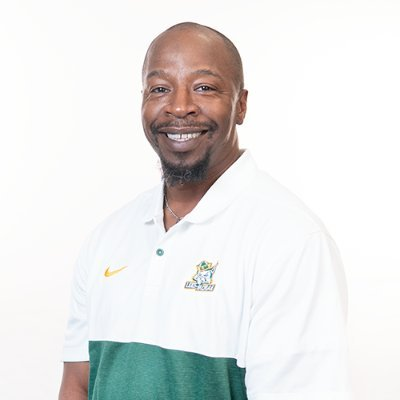
There’s no excuse why you can’t write a book and you can’t get this thing done. If a 16 year old blind girl who is on her third book (can do it). By the way, her mom just sent me her diploma. She just graduated from college from East Tennessee State University and her whole diploma is in Braille. How cool is that? That’s just one example, bro. I got so many examples of people who are doing phenomenal things by just simply writing a book. I got another guy, Keith, Mr. Jennings ended up playing for the Golden State Warriors. He was Tim Hardaway’s back up, right. And he tells his story of you know, going to high school, going to college and playing basketball and getting hurt while he was in the NBA. And he got tired of coming off the bench. He fulfilled his dream of going to the NBA, but then he got an offer to play overseas, right? He went overseas became an MVP, became National Player of the Year, and still getting paid to play basketball. The NBA called him back and he was like, No, I don’t want to be a backup. I just want to play ball now. I fulfilled the dream of going to the NBA. He said “I just want basketball to be the way I make my living.” And he stayed overseas man and became a star over there. He’s in the Hall of Fame over there and everything, bro. So it’s those types of stories man, we even turned his book into an actual movie man that’s going to be on Amazon Prime soon. It’s called Forever. Its available now on DVD. TheForeverMovie.com so bro, we help with it all bro. We can take it to any level.
n
Ric Sincere: Thank you, Mr. Kelly. I have no more excuses. No more excuses. It’s time to get started. Thank you so much. Where can people reach you if they want to get more information about writing a book?
n
Kelly Cole: For sure. So I have a free case study video, where you can dive a lot deeper into the process of writing a book and you can just go to www.booksforathletes.com, put in your best email, and it’s going to reveal to you the book after you watch the video. If you’re interested, you can schedule a call with me. There’ll be a button right underneath the video. And if you want to just follow me see what I’m up to, I am @MrKellyCole on all social media platforms.
nn
We thank Mr. Kelly Cole for sharing his amazing story with us and giving us some incredible insight on how easy it is for athletes to turn their stories into a book. The information in this interview can help all athletes or anyone that believes their life stories can serve as a point of inspiration for an audience.
